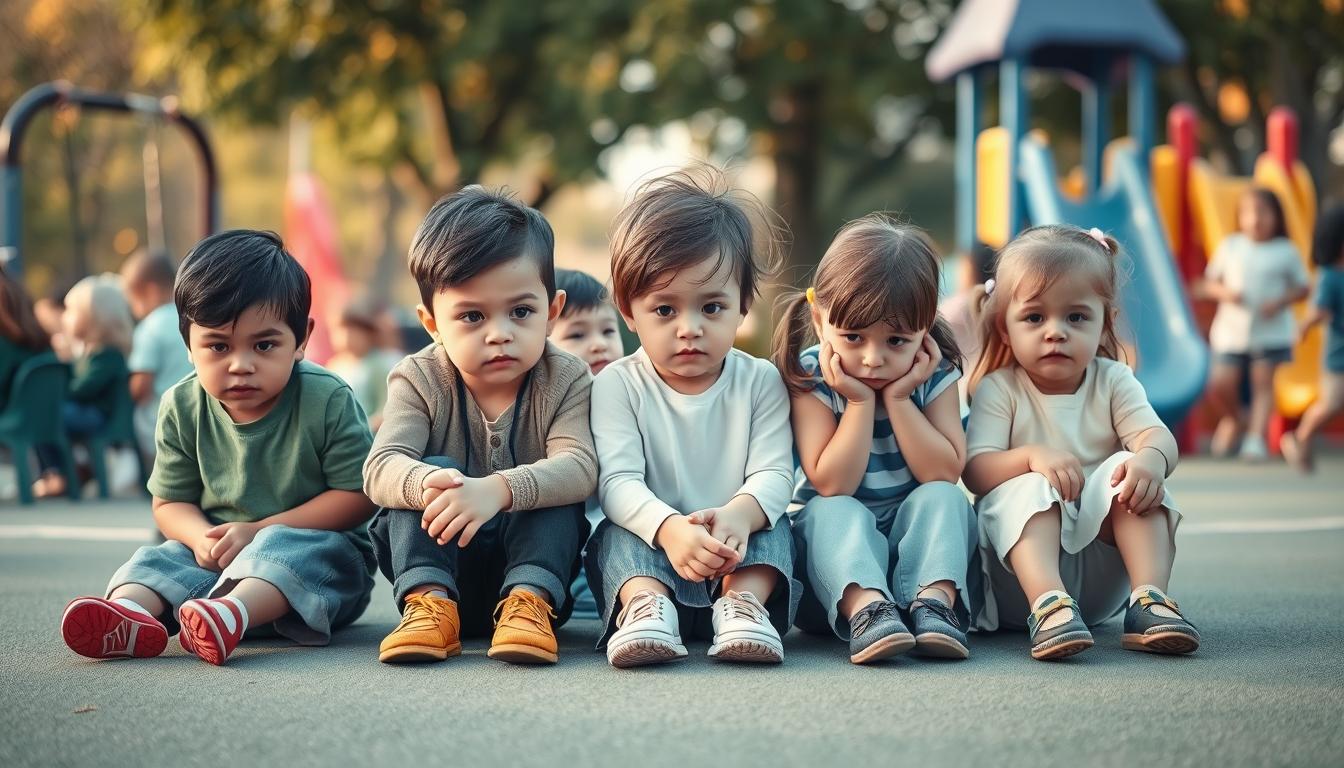Being a parent is full of joy and challenges, but it’s worth it. These early years are key for your child’s growth in many ways. I’m excited to share tips that help your little one grow strong and smart.
Toddlerhood is a time of big changes and learning. As parents, we must support our children’s growth. This article will guide you on how to help your toddler stay healthy and happy.
Key Takeaways:
- Understand your toddler’s developmental milestones to support their growth
- Create a balanced nutrition plan to fuel your child’s growing body and mind
- Establish healthy sleep routines to ensure your toddler gets the rest they need
- Incorporate physical activities and movement games to promote development
- Foster emotional intelligence and social skills for well-rounded growth
Understanding Your Toddler’s Developmental Milestones
Watching our toddlers grow is both exciting and humbling. They go through many stages, from physical growth to learning new things. Each stage has its own challenges and victories. Knowing these milestones helps us support our child’s growth.
Physical Development Markers
Physical growth in toddlers is fast and varied. They usually double their birth weight by one year old and grow about 5 inches tall. Skills like walking and climbing start between 12-18 months. Fine motor skills, like holding things, come a bit later, around 18-24 months.
Social and Emotional Growth Stages
Toddlers explore emotions and how to interact with others. They show many feelings, from happiness to sadness. Around 18-24 months, they want to do things on their own. Later, they start playing together more.
Language and Communication Progress
The toddler years are key for learning to talk. Most kids say their first words at 12 months. By 18-24 months, they start putting words together. By three years old, they know hundreds of words and can have simple talks.
Every child grows at their own pace. If you’re worried about your toddler’s growth, talk to your pediatrician. They can offer great advice and support.
Creating a Balanced Nutrition Plan for Growing Minds
Proper nutrition is key for toddlers’ growth, helping their bodies and minds grow strong. As a parent, making a good diet plan for your child can be both rewarding and challenging. We’ll look at the main parts of a diet plan that meets a toddler’s special needs.
First, knowing how much of each nutrient toddlers need is important. The American Academy of Pediatrics gives these guidelines for a balanced diet:
- Protein: 13 grams per day
- Carbohydrates: 130 grams per day
- Fiber: 19 grams per day
- Calcium: 700 milligrams per day
- Iron: 7 milligrams per day
When planning meals, aim for foods rich in nutrients like fruits, veggies, whole grains, lean proteins, and dairy. Start with small amounts of new foods to let your child explore tastes. Toddlers need smaller portions, about 1/4 to 1/2 of what adults eat.
| Food Group | Recommended Servings per Day |
|---|---|
| Fruits | 1-2 servings |
| Vegetables | 1-2 servings |
| Grains | 3-5 servings |
| Protein | 2 servings |
| Dairy | 2 servings |
A balanced diet for toddlers is not just about nutrition. It also helps with learning and healthy habits. By letting your child help with meal planning and cooking, you build a good relationship with food. This can help them eat well for their whole life.

“Healthy habits start early, and a balanced diet is the foundation for a thriving toddler.”
Establishing Healthy Sleep Routines and Habits
Quality sleep is vital for toddlers’ growth. It helps with their physical, mental, and emotional health. Setting up good sleep routines and habits can greatly improve your child’s well-being. Here are some tips to help your toddler sleep well.
Setting Up an Ideal Sleep Environment
A cozy sleep space is essential for healthy sleep. Think about these things for your toddler’s room:
- Keep the room cool, between 65-70°F.
- Use blackout curtains or blinds to block light.
- Add calming music or white noise to relax.
- Make sure there are no distractions, like TVs or phones.
Bedtime Ritual Recommendations
A consistent bedtime routine signals it’s time to sleep. Include these in your nightly routine:
- A calming bath or gentle massage
- Reading a soothing story
- Singing a lullaby or playing calming music
- Doing deep breathing or light stretching
Managing Sleep Transitions
Changes like moving from crib to bed or daylight saving time can be tough. Here’s how to help your toddler adjust:
| Transition | Strategies |
|---|---|
| Crib to Bed | Start with small steps to get used to the new bed. Keep bedtime routines the same. A toddler-sized bed can also help. |
| Daylight Saving Time | Slowly adjust bedtime and wake-up times. Keep routines the same and offer comfort during the change. |
By making a peaceful sleep space, a soothing bedtime routine, and carefully handling sleep changes, you can help your toddler sleep well. This supports their growth and health.

Physical Activities and Movement Games for Development
Helping a child grow physically and mentally is key to their happiness. Activities and games that match their age help them learn important skills. These include moving their body, balancing, and thinking clearly. We’ll look at fun indoor and outdoor games that help with these skills.
Indoor Exercise Ideas
Being stuck inside doesn’t mean you can’t stay active. Create an indoor obstacle course with things like pillows and boxes. It’s a great way to improve problem-solving and motor skills. “Dance Party” is another fun idea, letting your child dance and explore different moves.
Outdoor Play Activities
The outdoors is full of chances for kids to move and learn. Visit a park or playground for climbing and running. Activities like chasing bubbles or playing with a ball also help. These games help kids grow physically and connect with nature.
Balance and Coordination Games
Games that help with balance and coordination are very important. “Follow the Leader” is a fun way to practice these skills. You can also try a balance beam for more challenge. Always be there to help and keep them safe.
Adding different physical activities to your child’s day helps them grow. It’s a great way to support their development and make playtime fun. Enjoy watching your child grow and thrive!
Building Emotional Intelligence and Social Skills
As a parent, I know how vital it is to help my toddler grow emotionally and socially. These skills are key for their happiness and success. By teaching them to handle their feelings, I help them make better friends and connect with others.
Modeling emotional awareness is a big help. When my toddler sees me manage my feelings, they learn too. I also encourage them to share their feelings through words, art, or play. This helps them understand themselves better.
Teaching empathy is another important step. By asking them to see things from others’ viewpoints, I prepare them for deeper connections. Simple games or books about feelings can really make a difference.



